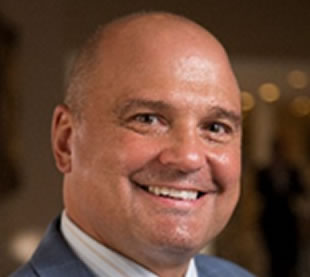
7 Mistakes To Avoid After Receiving A Financial Windfall
 These days, with enormous lottery jackpots almost common, many people think a financial windfall refers to an outrageous sum of money. However, those circumstances are very rare and financial windfalls are usually the result of a much more modest event such as an inheritance, cashing in of stock grants or options, the sale of a business, a favorable divorce settlement, or profits from the sale of real estate.
These days, with enormous lottery jackpots almost common, many people think a financial windfall refers to an outrageous sum of money. However, those circumstances are very rare and financial windfalls are usually the result of a much more modest event such as an inheritance, cashing in of stock grants or options, the sale of a business, a favorable divorce settlement, or profits from the sale of real estate.
Oftentimes these financial events, while substantial, can make people feel richer than they actually are. While these events may feel life-changing, in reality they may not ultimately change your standard of living. How you treat these events will determine their relative success and that is why it is important to avoid making some basic mistakes. So here are some traps to avoid in the event you receive tens of thousands of dollars, hundreds of thousands, or even a million dollars:
- Avoid making quick decisions. There is no need to rush into any major decisions with regards to spending—or investing—your money. That great trip to Vegas or that boat you want to buy can wait until you get a better understanding of all the implications of your newly found wealth. The same goes for making complex investment decisions.
- Avoid running into tax problems. Some windfalls may come with tax bills. This could be true with selling real estate, exercising stock grants, or winning a lottery, while others, like receiving an inheritance, can be tax-free to the recipient (with exceptions such as when you receive an IRA). Therefore, it is important to get sound tax advice from a CPA prior to spending your money. The IRS will not be forgiving if you didn’t know you owed them money and they will take action to collect even if it is already spent.
- Avoid being sold a complex financial product. Be careful when you go to the bank to deposit your check or after the wire transfer is completed. Expect most banks to refer you to their own investment department where a salesperson will be motivated to sell you some products. If this happens, be sure to postpone making any decisions until you identify your goals for the money and understand all your options.
- Avoid not knowing your true risk tolerance. For long-term investing, higher-risk investments such as common stocks are often appropriate; however, the potential stock-market rewards come with risks, mainly interim volatility. If having several hundred thousand dollars is new to you, then losing tens of thousands of dollars from normal stock-market fluctuations will also be new and may cause some anxiety. If you aren’t ready to deal with declines in account value you may react emotionally and pull out of the stock market, which may not be a smart move in the long run.
- Avoid investing with friends and relatives. There are a lot of people with get-rich-quick schemes or ideas they float as “can’t miss” investments. Avoid these at all costs and avoid being manipulated by those who are only looking out for themselves.
- Avoid the temptation to skip educating yourself about personal financial planning. Learning about managing money may feel daunting at first, but you can start slowly. Reading reputable online publications from independent sources is a good place to start. You can also enroll in a personal financial planning course at a local community college. As you become more educated, you will better understand your risk tolerance and the benefits of long-term stock market investing. You can also talk with a financial professional, but make sure it’s someone you can trust to act in your best interest.
- Avoid keeping your windfall in cash for many years. Cash in the bank is a fine place to start as you consider your options and it can be FDIC-insured. However, while cash in a bank may feel like a “safe” investment, there are drawbacks. Namely, the interest earned on bank deposits is subject to ordinary income tax, and your rate-of-return (before or after tax) rarely exceeds the inflation rate. As a result, your net real rate-of-return can be negative, which means you lose purchasing power over time.
While there has been some recent improvement in savings rates, financial freedom is still elusive to millions. GOBankingRates.com estimates that about 42 percent of Americans have nothing saved for retirement. So, if you are fortunate to have received a lump sum of money, enjoying a portion, and wisely investing the remainder is often the best strategy. As with any financial situation, sticking with a well-thought-out plan, remaining focused on your goals, and investing in a manner consistent with your risk tolerance is usually the right formula.



Engage us on Facebook
Follow us on Twitter
Tweets by @mymcmedia